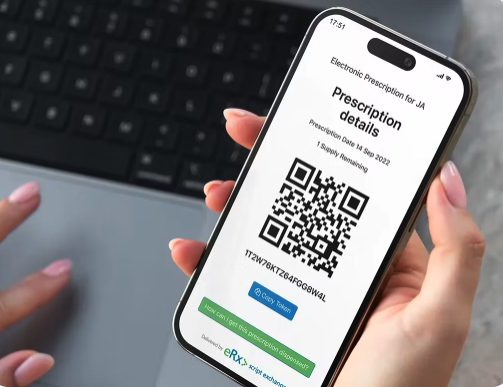Fred IT Group has won the contract to deliver the national electronic prescription delivery service (PDS) on behalf of the Department of Health and Aged Care.
Funding of $111.8 million over four years and $24.2 million ongoing to provide electronic prescription delivery infrastructure and services was announced in yesterday’s federal budget.
This follows the issuing of a tender for prescription exchange service providers by the department in March 2022 as part of its review of the electronic prescription ecosystem, run by Boston Consulting Group.
A Fred spokesperson said the eRx Script Exchange team will work with software vendors, prescribers and pharmacies to move to the new arrangements, which will commence on July 1.
eRx is Australia’s first and largest prescription exchange service and first went live in 2009. Its main rival is MediSecure, which together own a joint venture called Medication Knowledge that powers the National Data Exchange, the basis for prescription information used by the real-time prescription monitoring systems.
The new service will ensure that pharmacies will no longer have to reconcile individual invoicing and PBS online payments for electronic prescriptions, which held back that adoption of electronic prescriptions in community pharmacy for many years.
Fred IT CEO Paul Naismith said prescribers and pharmacies will also have certainty that electronic prescriptions and SMS tokens will continue without transaction costs.
The contract also includes funding for prescribing and dispensing software vendors to support compliant electronic prescription solutions and customer services.
It also promises a strengthened cyber security posture and greater protections against clinical risk.
“Health professionals and patients have gained substantially from faster and more accurate medication services in the 14 years since Fred launched Australia’s first electronic prescriptions,” Mr Naismith said.
“Doctors, pharmacists and patients will all further benefit from this next phase which streamlines management of the network and encourages ongoing innovation to support health professionals and patients.”
The budget also included funding that will mandate the use of ePrescribing for high risk and high cost medicines subsidised under the PBS.






I hope that the current problems with inconsistent drug brand names and/or active ingredient substitutions, due to the shortness of the text field attached to the QR code will be fixed in the next iteration.
I am in agreement with both GPs I talk to, and several pharmacists that it’s virtually impossible to match most original scripts to repeats using SMS searching. We have all reverted to paper printouts of original QR Codes & minimal text (except for telemedicine appointments, where SMS is the only available option) and all repeat QR codes so that I can find my scripts, and avoid asking the pharmacists to check records of a previous dispense half the time because the name on the label of the drug doesn’t match the text in the SMS.
We ask Patients to register themselves for the Active script list when they are next at the chemist. After they register all future scripts will be in the cloud and can be accessed anywhere with no hard copy script and no e script
Best practice has this option auto ticked to add to it in our system . Saves all those “lost my repeats request and when chemists forget to ping back repeats